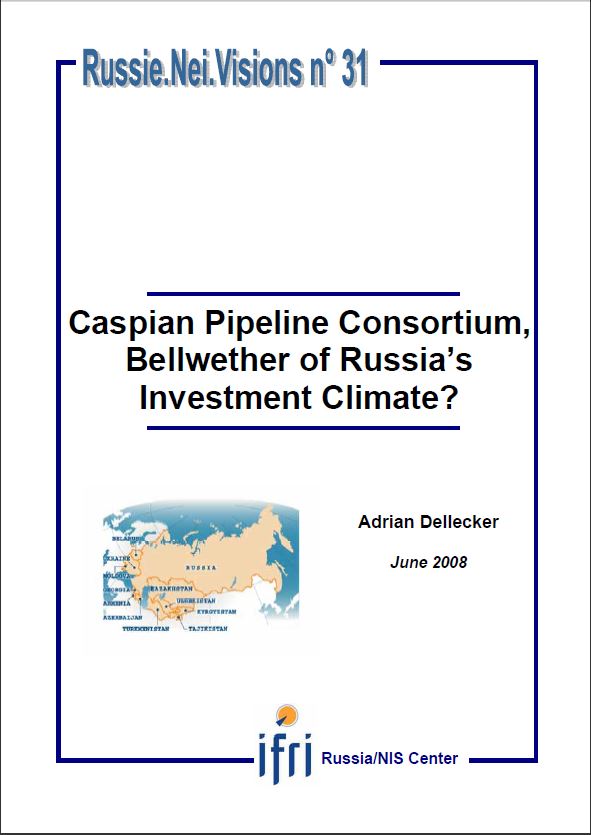Caspian Pipeline Consortium, Bellwether of Russia's Investment Climate?

The Caspian Pipeline Consortium (CPC), a shipper-owned oil pipeline carrying Caspian oil to Russia's Black Sea port of Novorossyisk, remains to this day the only oil export pipeline on Russian territory that is not under the control of the state company Transneft. Completed in 2001, the CPC was, from the start, the product of a fragile balance of power between states eager to maintain control of hydrocarbon flows and private companies able to finance the necessary infrastructure. Despite its economic success, the future of the CPC currently hinges on a shareholding dispute pitting Russia against Western private shareholders. This essay places the CPC dossier in the broader context of Russia's investment climate and argues that the dispute's dynamic is an important bellwether of the Russian energy policy.
Download the full analysis
This page contains only a summary of our work. If you would like to have access to all the information from our research on the subject, you can download the full version in PDF format.
Caspian Pipeline Consortium, Bellwether of Russia's Investment Climate?
Related centers and programs
Discover our other research centers and programsFind out more
Discover all our analysesDeathonomics: The Social, Political, and Economic Costs of War in Russia
The report attempts to outline and examine a truly new phenomenon in Russian society, dubbed “deathonomics”—the making of a mercenary army against the backdrop of the Kremlin’s war in Ukraine, eventually replacing both the Soviet (conscript) and early new Russian (contract) armies. It notes that, by the end of 2023, this trend had turned the military service into one of the highest-paying professions in the country, something not seen in Russia on such a scale since the late 17th century.
Russia's Asia Strategy: Bolstering the Eagle's Eastern Wing
Among Russia’s strategic priorities, Asia traditionally played a secondary role compared to the West. In the mid-1990s, then Foreign Minister Yevgeny Primakov initiated a rapprochement with China and India. Then, in 2014, deteriorating relations between Russia and the West prompted Moscow to begin its “great pivot to the East”.
Kazakhstan After the Double Shock of 2022: Political, Economic and Military Consequences
The year 2022 represented a dual shock for Kazakhstan. In January, the country faced its most severe political crisis since independence, followed in February by Russia’s full-scale invasion of Ukraine, which cast uncertainty over the borders of post-Soviet states. These consecutive crises profoundly shaped Kazakhstan’s domestic and foreign policy.

How the Russian Army Changed its Concept of War, 1993-2022
The traditional and high-intensity war that has occurred in Ukraine since Russia decided to invade raises a key issue: did post-soviet Russian strategic thought really prepare Russia for waging this war?









